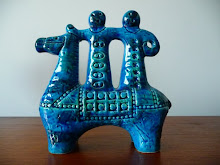Hairy truths
Yesterday, a conversation with a friend led to a serious discussion about chest hair. "I hate it," my friend declared, before adding, "It reminds me of wild monkies. And my dad."
So this is what it's come to. Rightly celebrated in the 70's as an emblem of potent, attractive virility, chest hair is now more likely to be associated with ferals and fathers. Why is it that we recognize the strength (both physical and symbolic) of hair elsewhere on the body, yet deny its power once it's located on a chest? According to Chinese folklore, when the Monkey King ripped hairs from his chest, they would customarily transform into an invincible army of fighting monkeys. Long, flowing hair was identified with strident anti-Vietnam War activism with the musical Hair. By contrast, when the biblical Samson's hair was cut while he was sleeping, he was rendered powerless. When the fair Belinda's hair was cut against her wishes, the incident moved her to tears and Alexander Pope to write an entire mock epic about it, entitled 'The Rape of the Lock'. More recently, when Keri Russell lopped off her hair at the start of the second season of Felicity, the ratings plummeted instantly; like Russell's trademark locks, the ratings never fully recovered.
Hair is powerful, alright. But when people invoke chest hair these days, they tend to associate it not with power, but rather with corpulence, excess, lack of hygiene, and perhaps worst of all, lack of purpose. For chest hair is often portrayed as useless, an unnecessary obstacle getting in the way of the chest itself. Like the concept of clipping the perennial hairmonger Burt Reynolds, chest hair is frequently dismissed as a waste of time. We can blame this attitude on the 80's, when the idea of waxing began to grow in mainstream popularity, and chest hair began to wane as a result. To be sure, when Mr. Miyagi orders his young charge Daniel san in the 80's classic The Karate Kid to "wax on, wax off", he could just as well have been speaking to a whole generation of human wax-works waxing phobically about follicles.
Today, too many cultural commentators deliver bald pronouncements against the hairy prospect of having chest hair, asseverating, as it were, the sheer ridiculousness of the unshorn chest.
But things are beginning to change. Last year, a Sydney Morning Herald article proclaimed that the "chest rug is in vogue". And it's not uncommon now to read or hear that men like Andre Agassi, Pierce Brosnan, and -- somewhat more surprisingly -- the firefighters who worked at Ground Zero, have helped to improve the image of chest hair, by making it appear disciplined, athletic, and sexy. Moreover, people are reviving the argument that body hair, far from being dirty, is the body's natural means of keeping itself clean, working to filter out foreign particles from sensitive spots like the navel and anus. (As Hamlet might've made the case, "Angels and ministers of God defend an-us!") So chest hair is hygienic, after all. At the same time, hirsute men like Samuel de Cubber and Ryan Zane (warning: image not suitable for workplaces) make chest-hairless men like me feel downright dirty.
Though chest hair is ostensibly incidental, it can nonetheless play a vital role in the vagaries of human attraction. In this respect, it possesses the same aesthetic value as do clothes in a striptease: it tantalizes precisely because it accentuates what it obscures, inciting the imagination to wonder, as one of hairy Harrison Ford's movies has it, 'what lies beneath'. Of course it's true that another Harrison Ford character, Han Solo, once admonished his hair-saturated friend Chewbacca with a reference to Chewbacca's hair: "Laugh it up, fuzzball!" But mightn't we put this down to jealousy of the yeti-like Chewbacca, rather than a dislike of his voluminous hair?
Ok, so Chewbacca may not be the best example to have cited when I'm talking up chest hair. But let's be clear on this. Chest hair can be as exhilarating as it's hair-raising; if kept from going AWOL, it can be the very mark of naval precision. Certainly, it can often have me standing to attention.
skip to main |
skip to sidebar
*F.O.P. from London via India and Hong Kong
About Me
Watched
- Before the Rain 3/5
- Burn After Reading 4/5
- Curious Case of Benjamin Button 3.5/5
- Milk 5/5
- Slumdog Millionaire 4.5/5
- Vicky Cristina Barcelona 4/5
- Yes Man 3.5/5
Reading
- Habitus issue 02 January - March 09
- Unaccustomed Earth by Jhumpa Lahiri
- What Colour is Your Parachute by Richard Nelson Bolles
- What Next? Surviving the Twenty-First Century by Chris Patten
Archives
-
▼
2003
(90)
-
▼
July
(18)
- Alexander the Great Gay Hero?
- Divas on the Move
- Hairy truths
- Australian Idol
- Gay it Forward
- Servius 4 Maximus
- Tourism and its Discontents
- You Know who you are
- Send in the Clones
- The Last Supper
- 'Crazy if you love it'
- Springtime for Hitler
- Girl, Interrupted
- Chris Meloni and papa, can you hear me?
- Doppelganger
- The Cross
- Hong Kong Handover
- Sabbatical I received my exam results last Wednesd...
-
▼
July
(18)

No comments:
Post a Comment